-
Ekphrastic Art
Words from art and back again…
Ever since the Roman poet Horace set down in his Ars Poetica (c. 13 BC) the dictum "ut pictura poesis"--"as is painting, so is poetry"--the two arts have been wedded in the critical mind. Poets and painters sometimes turn to one another for inspiration, and the dialogue has been mutually beneficial.
In ekphrasis, or ekphrastic art, there are initially two imaginations at work—that of the original artist, and that of the respondent through his/her medium.
Look at the examples below which are poems created in reaction to art. Research other examples of ekphrastic art and poetry. Make notes, find examples and make thumbnails.
When you are fully comfortable with this art form, create your own piece of art inspired by a poem or other piece of writing.
Size and Media are open
Poetry inspired by paintings: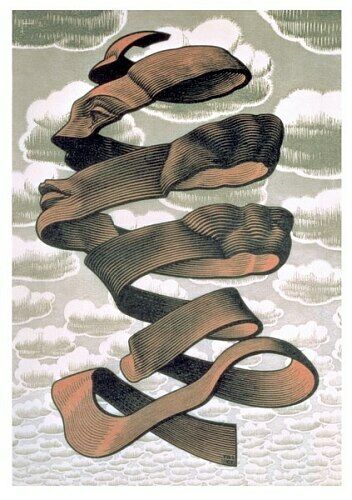 Rind by M.C. EscherRind
Rind by M.C. EscherRind
The critic
resolves her sonnets
into empty feet.
The boss
rejects proposals
he has barely skimmed.
The husband
compares her pilaf
to swill for hogs.
The gas
she hopes will kill her
leaks away.
The analyst
unpeels her
till she disappears.
Poem by Catherine A. Callaghan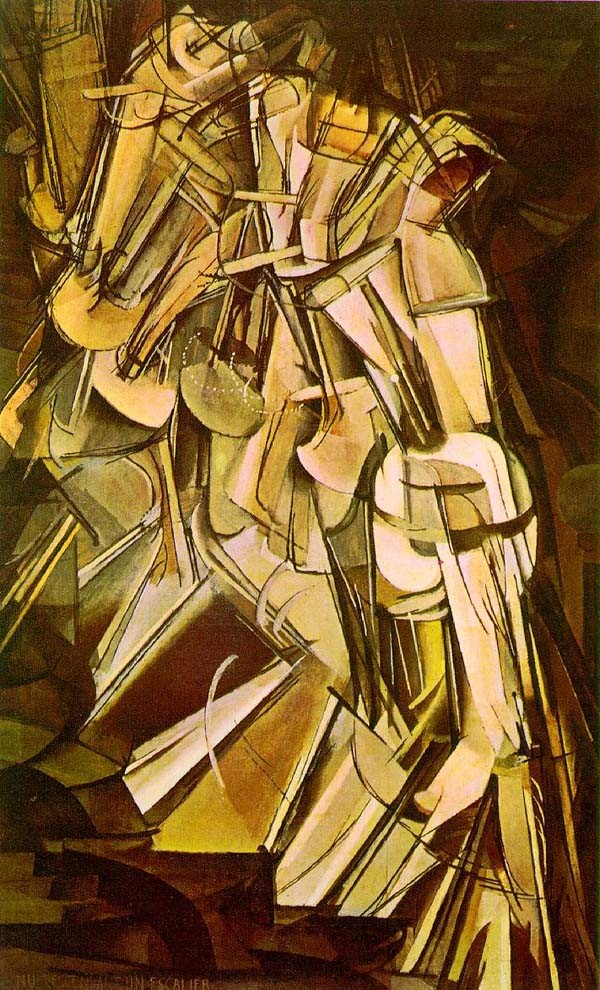 Marcel Duchamp- Nude Descending a Staircase, No. 2Nude Descending a StaircaseToe upon toe, a snowing flesh,
Marcel Duchamp- Nude Descending a Staircase, No. 2Nude Descending a StaircaseToe upon toe, a snowing flesh,
A gold of lemon, root and rind,
She sifts in sunlight down the stairs
With nothing on. Nor on her mind.We spy beneath the banister
A constant thresh of thigh on thigh--
Her lips imprint the swinging air
That parts to let her parts go by.One-woman waterfall, she wears
Her slow descent like a long cape
And pausing, on the final stair
Collects her motions into shape.Poem by X. J. KennedyPainting inspired by Poetry: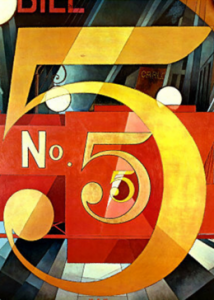 I Saw the Figure 5 in Gold
I Saw the Figure 5 in Gold
Charles Demuth (1928)"The Great Figure"
William Carlos Williams (1920)Among the rain
and lights
I saw the figure 5
in gold
on a red
firetruck
moving
tense
unheeded
to gong clangs
siren howls
and wheels rumbling
through the dark city.Student work -inspired by various literature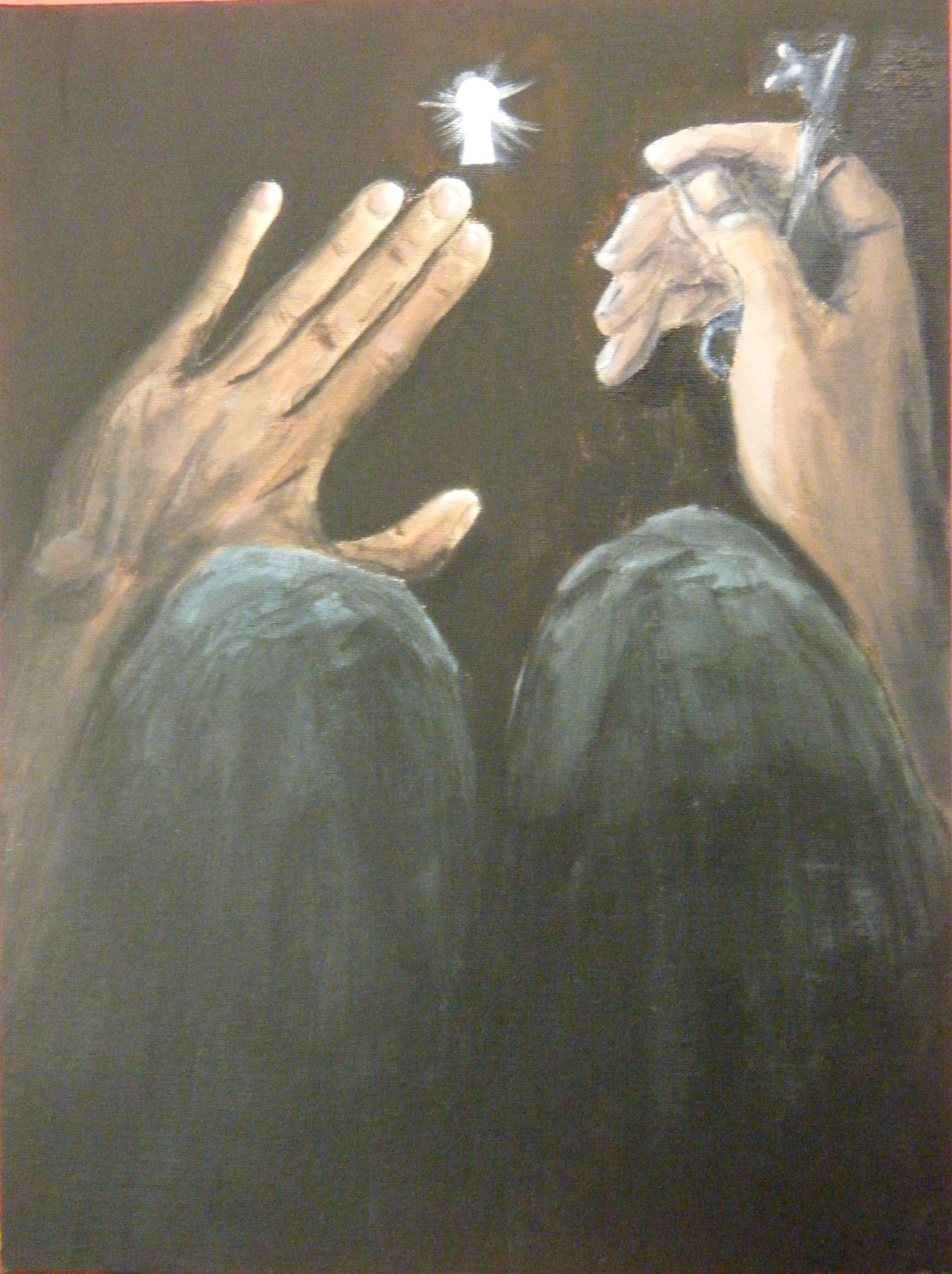
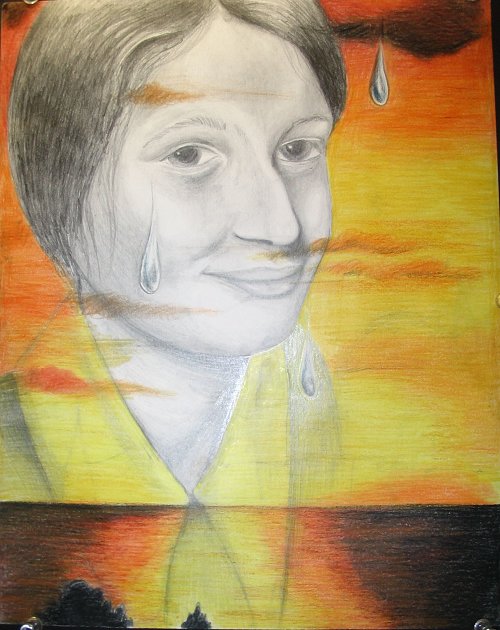
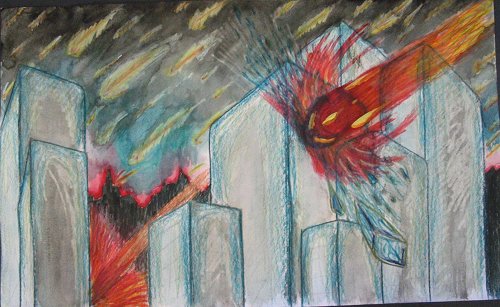
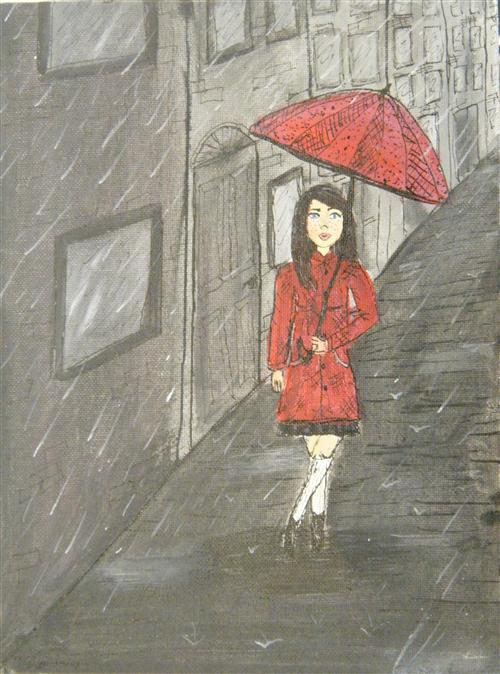
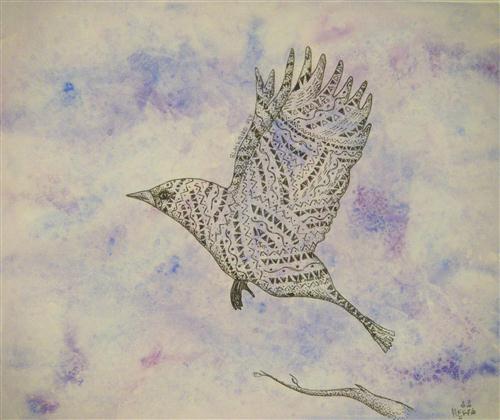
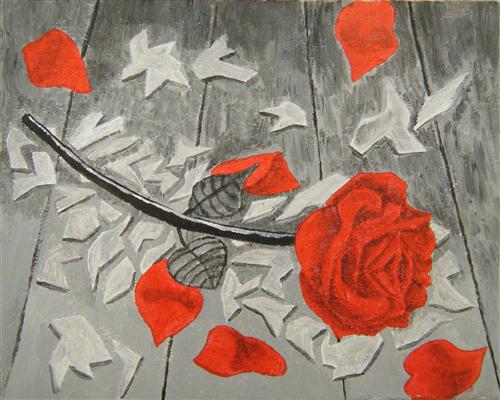
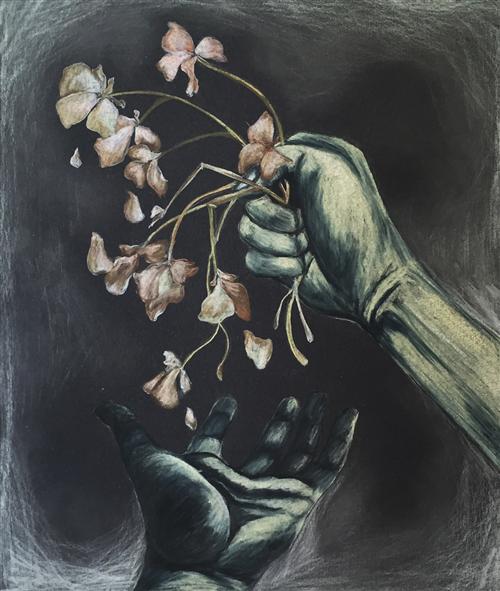
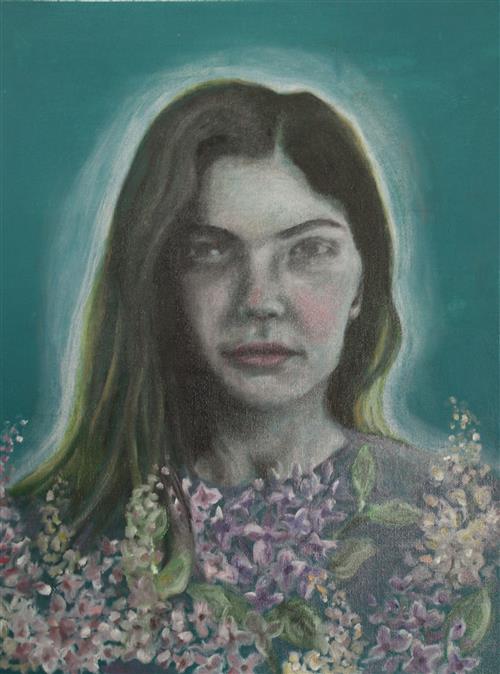
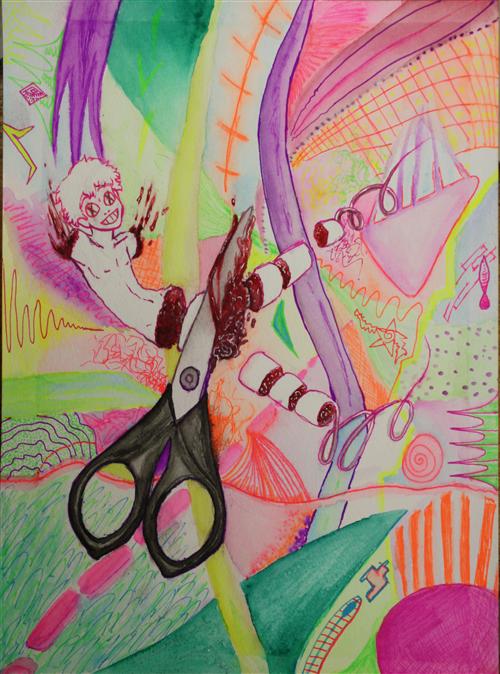
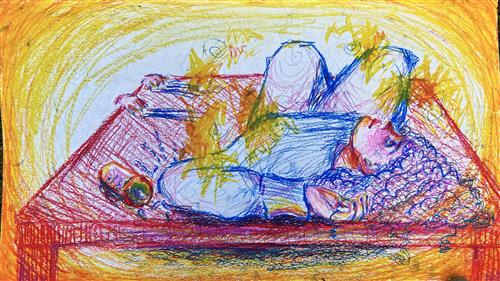 Poems Inspired by artwork (click on the audio to hear the poem being read)
Poems Inspired by artwork (click on the audio to hear the poem being read)Poem #1 "Edward Hopper and the House by the Railroad"
Edward Hirsch (1995)Out here in the exact middle of the day,
This strange, gawky house has the expression
Of someone being stared at, someone holding
His breath underwater, hushed and expectant;This house is ashamed of itself, ashamed
Of its fantastic mansard rooftop
And its pseudo-Gothic porch, ashamed
of its shoulders and large, awkward hands.But the man behind the easel is relentless.
He is as brutal as sunlight, and believes
The house must have done something horrible
To the people who once lived hereBecause now it is so desperately empty,
It must have done something to the sky
Because the sky, too, is utterly vacant
And devoid of meaning. There are noTrees or shrubs anywhere--the house
Must have done something against the earth.
All that is present is a single pair of tracks
Straightening into the distance. No trains pass.Now the stranger returns to this place daily
Until the house begins to suspect
That the man, too, is desolate, desolate
And even ashamed. Soon the house startsTo stare frankly at the man. And somehow
The empty white canvas slowly takes on
The expression of someone who is unnerved,
Someone holding his breath underwater.And then one day the man simply disappears.
He is a last afternoon shadow moving
Across the tracks, making its way
Through the vast, darkening fields.This man will paint other abandoned mansions,
And faded cafeteria windows, and poorly lettered
Storefronts on the edges of small towns.
Always they will have this same expression,The utterly naked look of someone
Being stared at, someone American and gawky.
Someone who is about to be left alone
Again, and can no longer stand it.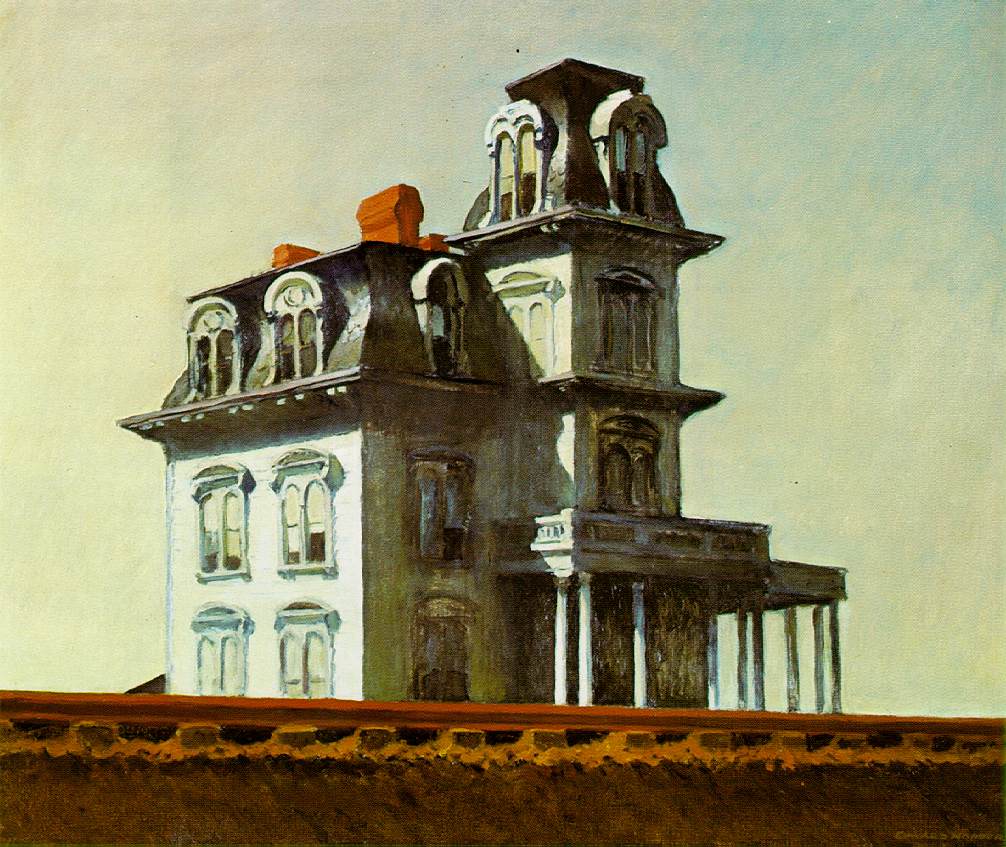 Poem #2
Poem #2Audio Version
Girl Powdering Her NeckCathy SongThe light is the inside
sheen of an oyster shell,
sponged with talc and vapor,
moisture from a bath.A pair of slippers
are placed outside
the rice-paper doors.
She kneels at a low table
in the room,
her legs folded beneath her
as she sits on a buckwheat pillow.Her hair is black
with hints of red,
the color of seaweed
spread over rocks.Morning begins the ritual
wheel of the body,
the application of translucent skins.
She practices pleasure:
the pressure of three fingertips
applying powder.
Fingerprints of pollen
some other hand will trace.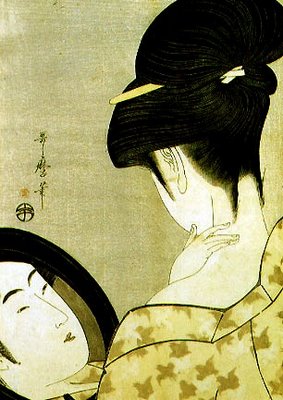 Poem #3
Poem #3"Paul Delvaux: The Village of the Mermaids"
Lisel Mueller (1988)Who is that man in black, walking
away from us into the distance?
The painter, they say, took a long time
finding his vision of the world.The mermaids, if that is what they are
under their full-length skirts,
sit facing each other
all down the street, more of an alley,
in front of their gray row houses.
They all look the same, like a fair-haired
order of nuns, or like prostitutes
with chaste, identical faces.
How calm they are, with their vacant eyes,
their hands in laps that betray nothing.
Only one has scales on her dusky dress.It is 1942; it is Europe,
and nothing fits. The one familiar figure
is the man in black approaching the sea,
and he is small and walking away from us.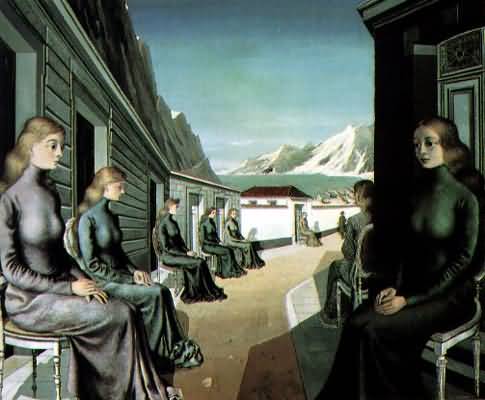
Select a School...

